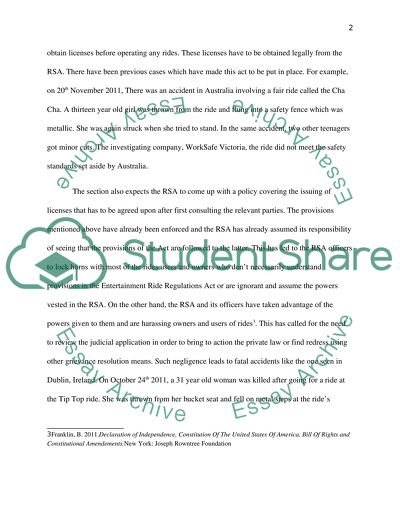Cite this document
(“The Entertainment Ride Regulation Act Essay Example | Topics and Well Written Essays - 2000 words”, n.d.)
Retrieved from https://studentshare.org/law/1440850-in-response-to-a-number-of-accidents-at
Retrieved from https://studentshare.org/law/1440850-in-response-to-a-number-of-accidents-at
(The Entertainment Ride Regulation Act Essay Example | Topics and Well Written Essays - 2000 Words)
https://studentshare.org/law/1440850-in-response-to-a-number-of-accidents-at.
https://studentshare.org/law/1440850-in-response-to-a-number-of-accidents-at.
“The Entertainment Ride Regulation Act Essay Example | Topics and Well Written Essays - 2000 Words”, n.d. https://studentshare.org/law/1440850-in-response-to-a-number-of-accidents-at.


